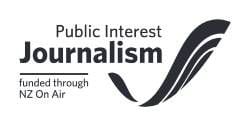Public Interest Journalism funded through NZ On Air
The Mongrel Mob has instructed a lawyer to look at National’s gang policy and threats that Foul Masks - members who have gang regalia tattooed on their faces - will be forced to use makeup to cover up.
Free speech advocates, meanwhile, said National’s policy was “bad and counterproductive”, likely to “push gangs further underground to fester”.
Tokoroa lawyer Arama Ngapo confirmed that she had been asked by the Mongrel Mob to investigate the legality of National’s election pledge.
“I can confirm that I have been asked for legal advice on that matter,” Ngapo told the Herald.
“If Mr [Prime Minister-elect Christopher] Luxon thinks the solution to gangs in Aotearoa/New Zealand is to ‘Thin Lizzy’ the problem away, he is ignoring over 100 years of colonisation and systemic racism which left Māori in a cycle of poverty that led to the creation of gangs,” she said.
/cloudfront-ap-southeast-2.images.arcpublishing.com/nzme/UASI35CLZZDW7BXIWMBWM5NJUM.jpg)
Lawyer Arama Ngapo.
Last week potential incoming Police Minister Mark Mitchell announced that National - the majority party of the incoming coalition Government - may ban gang facial tattoos if its planned ban on gang patches does not work.
Mitchell said gang members will be made to apply foundation when they wake up in the morning or face arrest.
- 'Psychological war': Mongrel Mob boss says Nats govt will be 'devastating' to gangs
- Former Black Power member welcomes National's proposed approach for gangs
The party is also promising to give police powers to search suspected gang members, their vehicles and properties without warrants, and issue dispersal notices banning gang members from talking to one another.
Mitchell said gang activity would also be banned on social media.
Mitchell told the Herald this evening: “Our policy does not include the banning of gang tattoos.
“We are aware the Mongrel Mob have been making public statements that gangs will use face and neck tattoos to expose the public to their patches and gang insignia.
“I have highlighted the way the Western Australian government dealt with gang tattoos was to ban them. They have successfully charged and convicted gang members for displaying gang tattoos in public,” he said.
Western Australia’s Attorney-General, John Quigley, said if gangsters’ tattoos were on parts of their body not covered by clothing “they’ll have to find some other way to cover it. Either ... make-up [or] foundation,” 9News reported.
/cloudfront-ap-southeast-2.images.arcpublishing.com/nzme/BCDSNPVCC5HW5LPTQSDJYF7BGQ.jpg)
Mark Mitchell meets gang whānau hikoi representatives Matilda Kahotea and Taniora Tamihana (left) at Parliament. Photo / Mark Mitchell
But a Mob spokesperson said the gang wanted to check if Mitchell’s plans had any legality or legitimacy. In the gang’s view, his policies are “hot air and a waste of taxpayer time and money”.
The spokesperson said Foul Masks was a term used by judges and police for gang members who started tattooing their faces but not as part of their cultural identity, such as in the case of ta mokos.
“We are sure our brothers with Foul Masks who don’t have the ta moko - which is deeply respected - are ones who were disconnected from hapu and iwi by state care and prison and would now be unfairly targeted,” the spokesperson said.
A former Mob member posted on social media that National’s policy was stupid.
“Whānau especially the old Doggs like me who have worked hard to move away from crime and drugs will suddenly be under threat because of the taonga [gift] I’ve put of my face out of love and respect 30 years ago!,” he said.
The Mob spokesperson said the man had “been out of jail for over 23 years and really changed his life for the better”.
The Mob’s social media pages are full of members who say they will join any class action against the National-led Government to prevent their policies from becoming law. They have also put out a filtered online video to break down stereotypes that facial tattoos “are not violent or scary”.
Ngapo is organising a Zoom hui with gang members to offer a legal view and possible next steps.
Free Speech Union chief executive Jonathan Ayling said the policy would cause more harm than good and wouldn’t protect victims of gang crime.
Ayling said National was “grandstanding” with a " bad and counterproductive” policy.
“Ban[ning] gang patches in public spaces and ... suppress[ing] gang communication and social media usage ... does not mean gang activity will cease to exist. Rather, it will simply push it out of sight,” he said.
“National’s gang policies are grandstanding, appealing to fear. This policy not only fails to deal with the issue; it will compound the harms of crime and violence.”
He said incoming-Prime Minister Christopher Luxon’s comments to media showed he was “unable to answer ... if his policies were a breach of human rights”.
Ayling said Luxon appeared “disturbingly unconcerned by the issue” of human rights.
“No matter how much you dislike gangs, they are protected by the Bill of Rights, including freedom of expression, like anyone else.
“Luxon [said] gang members’ failure to meet responsibilities means gangs lose their rights. Luxon should clarify what he means – the implication that Kiwis can lose their human rights if they don’t fulfil these unspecified responsibilities is chilling.”

Joseph Los’e joined NZME in 2022 as Kaupapa Māori Editor. Los’e was a chief reporter, news director at the Sunday News newspaper covering crime, justice and sport. He was also editor of the NZ Truth and prior to joining NZME worked for 12 years for Te Whānau o Waipareira.
Take your Radio, Podcasts and Music with you









